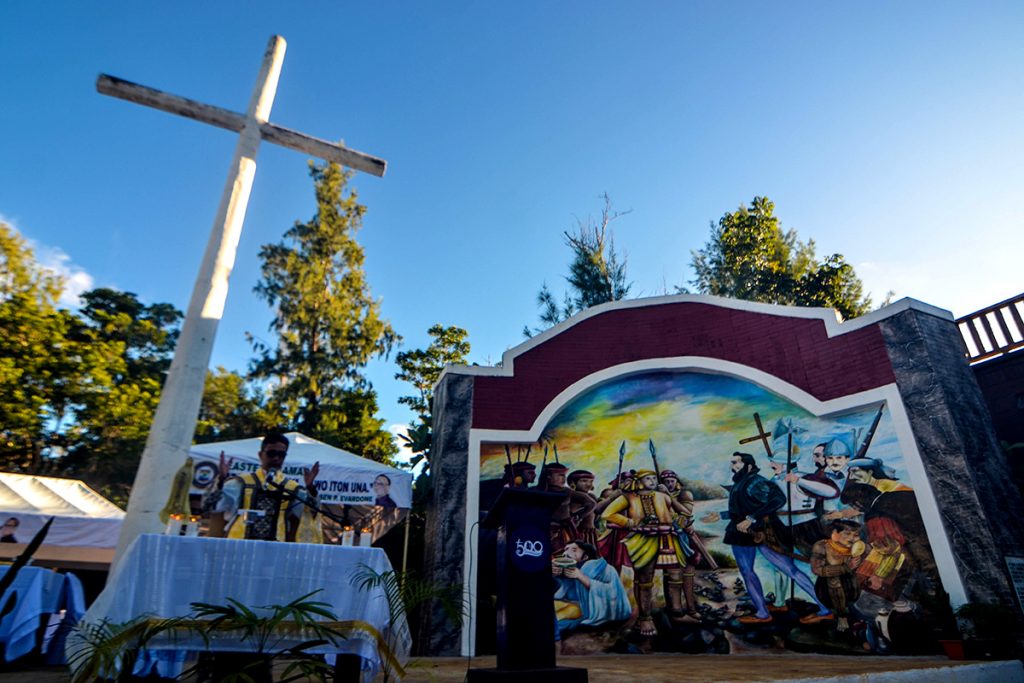
The Filipino people’s Christian faith is “a gift from God and not from Spain,” said the Philippines’ Catholic Church leaders in a pastoral letter released on March 23.
The bishops released the statement titled “Pastoral letter Celebrating the 500th Year of Christianity in the Philippines” amid statements equating the the arrival of Christianity in the country to colonialism.
“Since we count it as grace, we also presuppose that God knew well enough to endow our ancestors with the intelligence to accept what was good and reject what was evil in what the Spaniards had brought with them,” read the prelates statement.
The bishops, however, admitted that “we have obviously not always succeeded” in accepting the good and rejecting the evil brought by Spain.
They noted that even after 500 years of Christianity, Filipinos are still learning to sort the valuable from the worthless.
“The fact that we continued to embrace the Christian faith even after we rejected colonial rule must mean that our ancestors did not equate Christianity with the treacherous economic and political agenda of the colonists,” said the bishops.
Christianity had succeeded in “taking root on the fertile ground of our innate spirituality as a people, with our own unique gifts and charisma from the one Spirit that we received at baptism,” they added.
The country’s Catholic leaders said that to deeply understand the Filipino people’s faith, the bishops’ conference has commissioned a research partnership with the University of Santo Tomas to look into “the present state of Catholic Christianity” in the country.
“We hope to be able to discuss the result of this extensive research work in our next plenary assembly,” read the pastoral letter signed by Archbishop Romulo Valles of Davao, president of the bishops’s conference.
The Church leaders said that the result of the conference can serve as a good basis for deciding whether or not it is time call for a Third Plenary Council of the Philippines.
They said that a plenary council could set the local Church’s missionary agenda in “the next 500 years.”
The last Plenary Council of the Catholic Church in the Philippines was held in 1991 when the country’s Church leaders declared to be the first national church in the world to become a “Church of the Poor.”
Ten years later, however, the Church had to admit that its effort had failed, saying it missed its historic destiny.
In his pastoral letter, Archbishop Valles invited the faithful to make this year “a year of looking back in history so that we can understand better who we are in the present as communities of disciples.”
He also urged everyone to make the occasion “an opportunity … to look forward in the next 500 years with the same missionary zeal that made it possible for us to receive the Christian faith.”
“What we received without cost is also what we give without cost,” read the statement of the country’s Church leaders.
The bishops then echoed Cardinal Luis Antonio Tagle’s call when he said “the gift must continue being a gift. If it is kept for oneself, it ceases to be a gift.”
“By God’s mysterious design, the gift of faith we have received is now being shared by the millions of Christian Filipino migrants in the different parts of the world,” said Cardinal Tagle, former prelate of Manila, in an earlier statement quoted in the pastoral letter.
Portuguese explorer Ferdinand Magellan, who traveled under the banner of Spain, landed in the Philippines on March 16, 1521. The first documented celebration of the Holy Eucharist in the archipelago was held on March 31, 1521, Easter Sunday.
Source: Licas Philippines
0 Comments